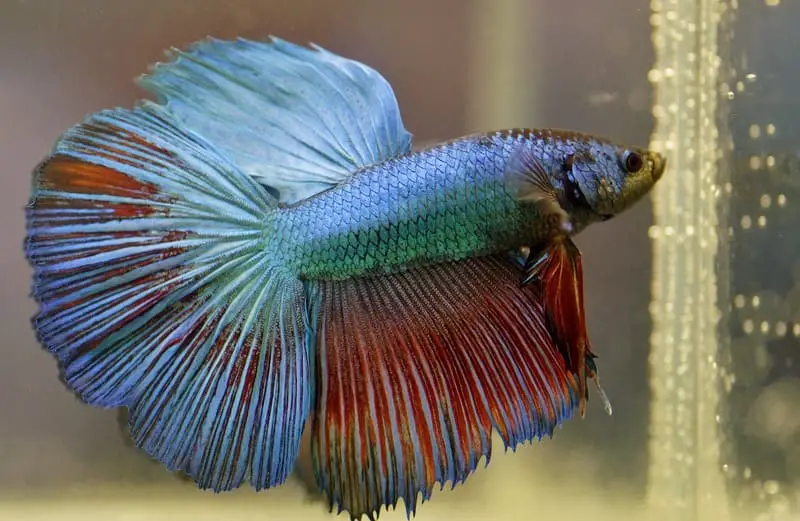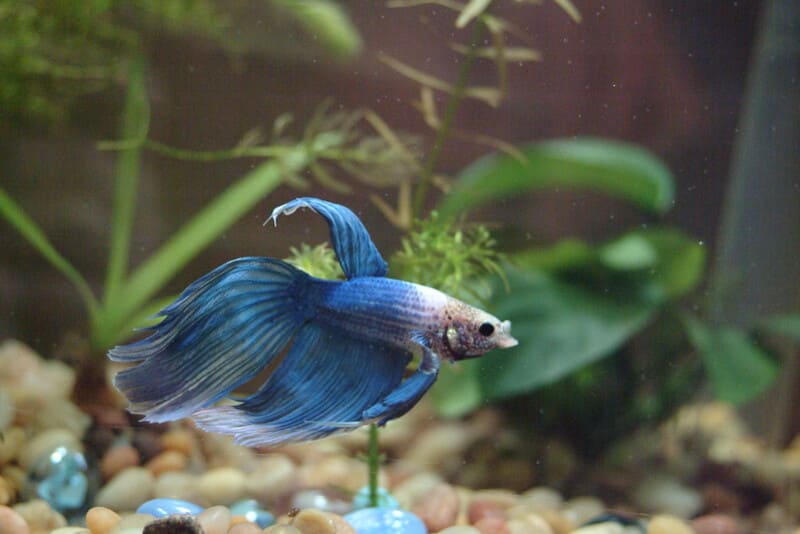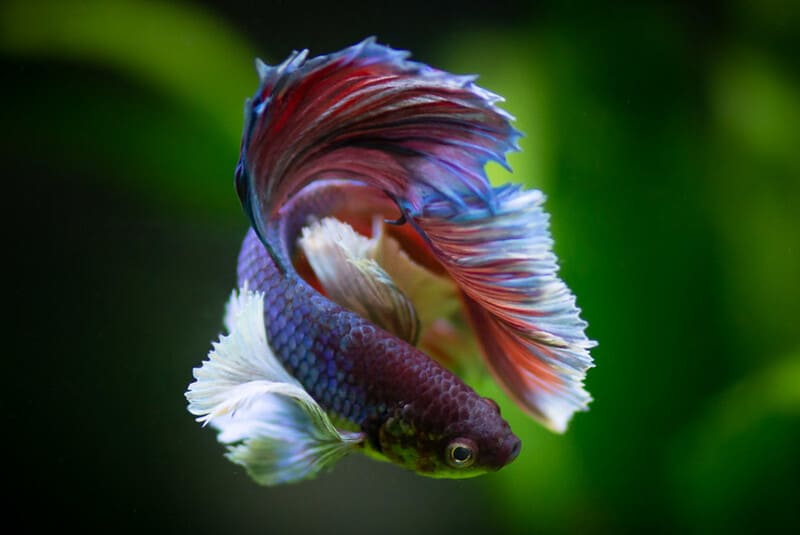Betta fish, scientifically known as Betta splendens, are one of the most popular and aesthetically pleasing aquarium fish in the world. Their vibrant colors and flowing fins make them a favorite among fish enthusiasts. However, the care and maintenance of these beautiful creatures can be quite intricate, and one common debate among betta owners is whether or not a heater is necessary for their well-being.
In this comprehensive guide, we will delve into the intricacies of betta fish care and explore the importance of using a heater in their aquariums. We will examine the environmental requirements of betta fish, the significance of temperature regulation, and the potential consequences of not using a heater.

Understanding Betta Fish Habitat
Before we delve into the necessity of a heater for betta fish, it’s important to understand the natural habitat of these fish. Betta fish are native to Southeast Asia, primarily inhabiting slow-moving and often shallow waters, such as rice paddies, ponds, and small streams. These waters are typically warm and tropical, providing important insights into the environmental conditions that bettas have evolved to thrive in.
Natural Water Parameters
Betta fish are accustomed to certain water parameters in their natural habitat, which are critical to their well-being:
- Temperature: Betta fish thrive in warm waters with temperatures ranging from 78 to 80 degrees Fahrenheit (25-27 degrees Celsius). These tropical temperatures are essential for their metabolic processes, digestion, and overall health.
- pH Level: Bettas prefer slightly acidic to neutral water, with a pH range of 6.5 to 7.5. Maintaining the appropriate pH level is important to prevent stress and health issues.
- Hardness: Betta fish are adaptable to a wide range of water hardness, but they tend to thrive in slightly soft to moderately hard water conditions.
- Ammonia, Nitrite, and Nitrate Levels: Like all fish, bettas are sensitive to ammonia, nitrite, and nitrate levels in their environment. It is crucial to maintain proper filtration and water changes to keep these parameters within safe limits.
Adaptation to Changing Conditions
Betta fish have evolved to adapt to changing conditions in their natural habitat. During the rainy season, their ponds may experience fluctuations in water temperature and oxygen levels. This adaptability is an essential survival mechanism for bettas, but it does not mean that they can thrive in poor or unstable conditions in captivity.
Importance of Temperature for Betta Fish
Maintaining the right water temperature is of paramount importance when caring for betta fish. Here are some key reasons why temperature regulation is crucial:
1. Metabolic Activity
The metabolic rate of betta fish, like all fish, is highly dependent on the water temperature. Temperature affects their digestion, nutrient absorption, and overall metabolic processes. In cooler water, their metabolic rate slows down, which can lead to digestive problems and reduced overall health. On the other hand, in excessively warm water, their metabolism may become too rapid, leading to stress and potential health issues.
2. Immune System Function
A stable and appropriate water temperature is essential for the proper functioning of a betta fish’s immune system. Fluctuations in temperature can weaken their immune response, making them more susceptible to diseases and infections. The stress caused by temperature variations can also result in a suppressed immune system, making them more vulnerable to pathogens.
3. Behavior and Activity
Betta fish are known for their vibrant and active behavior, but this is only true when they are in the right temperature range. Inadequate temperatures can lead to lethargy and decreased activity. Betta fish may become less responsive, eat less, and spend more time resting on the substrate if the water is too cold. This lack of activity not only affects their quality of life but can also be a sign of underlying health issues.
4. Reproductive Behavior
For bettas to breed successfully, a specific temperature range is required. Mating rituals and the development of their offspring are temperature-sensitive processes. If the water temperature is too cold or too hot, it can disrupt the breeding cycle and lead to unsuccessful reproduction.
5. Preventing Stress
Stress is a significant concern for betta fish, as they are highly territorial and can be aggressive toward other fish and even their own reflection. Proper temperature regulation helps minimize stress, as temperature-related stressors can exacerbate aggression. A comfortable temperature range helps keep bettas calm and content.

Temperature and Health Issues
Inadequate temperature control can lead to a range of health issues for betta fish. Some common problems associated with temperature fluctuations include:
1. Temperature Shock
Rapid changes in temperature can cause temperature shock, which is a severe stress response in fish. For bettas, being exposed to water that is too cold or too warm can trigger this condition. Temperature shock weakens their immune system and makes them susceptible to diseases.
2. Ich (White Spot Disease)
Ichthyophthirius multifiliis, commonly known as ich or white spot disease, is a parasitic infection that often appears when fish are stressed. It is characterized by small white cysts on the fish’s body and fins. Temperature fluctuations can induce stress, increasing the likelihood of ich outbreaks.
3. Fin Rot
Fin rot is a bacterial infection that typically starts when a fish is stressed. Poor water conditions, which can result from temperature-related stress, can lead to this condition. It is characterized by the deterioration of a fish’s fins and tail.
4. Swim Bladder Issues
Temperature-related stress can impact the swim bladder, an organ that helps fish control their buoyancy. When the swim bladder malfunctions, bettas may struggle to maintain their position in the water, causing them to float uncontrollably or sink to the bottom of the tank.
5. Respiratory Problems
Extreme temperatures, especially cold water, can impair a betta’s ability to extract oxygen from the water, leading to respiratory difficulties. Oxygen absorption is temperature-dependent, and fish may struggle to respire if the water is too cold.
Signs of Temperature-Related Stress in Betta Fish
It is essential to be able to identify signs of temperature-related stress in betta fish. Recognizing these indicators early can help you take corrective action and prevent further health issues. Common signs of temperature-related stress in bettas include:
- Lethargy: Bettas become less active and may rest at the bottom of the tank.
- Loss of Appetite: They may refuse to eat or eat significantly less than usual.
- Fading Colors: The vibrant colors of betta fish may start to dull or fade.
- Clamped Fins: Their fins may be held tightly against their bodies, a sign of discomfort or stress.
- Gasping at the Surface: Betta fish may be seen gasping for air at the water’s surface, especially if the temperature is too warm.
- Erratic Behavior: They may exhibit erratic swimming patterns or unusual behavior.
- Hiding: Bettas may seek shelter or hide in the tank, trying to escape unfavorable conditions.
- Frequent Surface Breathing: In cold water, bettas may come to the surface frequently to breathe, as oxygen solubility decreases in colder water.
Use of Heaters in Betta Fish Tanks
Given the significance of temperature control in betta fish care, using a heater in their aquarium is highly recommended. A reliable aquarium heater allows you to maintain a stable and appropriate water temperature, ensuring the well-being of your bettas.
Types of Aquarium Heaters
There are various types of aquarium heaters available, each with its own set of features and advantages:
- Submersible Heaters: These are the most common type of aquarium heaters. Submersible heaters are fully submerged in the water and often come with a thermostat to regulate the temperature automatically. They are typically easy to install and offer precise temperature control.
- Immersion Heaters: Immersion heaters are placed directly into the aquarium and operate by immersing a heating element into the water. They are less common and may require manual temperature adjustment.
- Hanging Heaters: Hanging heaters are suspended above the water and heat the tank indirectly. They are less precise than submersible heaters but are a good option for larger tanks.
- Suction Cup Heaters: These heaters are equipped with suction cups that allow you to attach them to the inside of the tank. They are suitable for smaller tanks and are relatively easy to install.
Choosing the Right Heater
When selecting a heater for your betta tank, consider the following factors:
- Tank Size: The size of your aquarium will determine the wattage of the heater you need. Smaller tanks require lower-wattage heaters, while larger tanks need more powerful ones.
- Thermostat: A heater with a built-in thermostat is essential for maintaining a stable temperature. It allows you to set and control the desired temperature range.
- Safety Features: Look for heaters with safety features such as automatic shutoff in case of overheating or exposure to air.
- Quality and Durability: Invest in a reliable and durable heater from a reputable manufacturer. Cheaper heaters may be less reliable and could malfunction, potentially harming your bettas.
- Ease of Installation: Choose a heater that is easy to install and maintain. Submersible heaters are generally easier to work with.
Temperature Regulation
To ensure that your betta fish are comfortable and healthy, it is essential to regulate the temperature of the water within the appropriate range. Here are some guidelines for temperature regulation:
- Set the Heater: Install the heater in your tank and set it to the desired temperature range. For bettas, aim for a range of 78 to 80 degrees Fahrenheit (25-27 degrees Celsius).
- Use a Thermometer: To monitor the water temperature, use an aquarium thermometer. It is essential to confirm that the heater is maintaining the desired temperature range.
- Regular Maintenance: Check the heater and thermometer regularly to ensure they are functioning correctly. Calibrate the heater if necessary.
- Avoid Drastic Changes: Make gradual adjustments to the temperature if needed. Sudden changes can stress your bettas.
Heater Placement
Where you place the heater in your tank is also important. It should be positioned in a way that maximizes its efficiency while ensuring the safety of your fish:
- Submersion: If you are using a submersible heater, make sure it is fully submerged in the water. The water level should be above the minimum water line marked on the heater.
- Positioning: Place the heater near a water circulation source, such as the filter outlet, to help distribute the warmed water throughout the tank.
- Avoid Obstructions: Ensure that the heater is not obstructed by decorations, plants, or other objects in the tank. Unobstructed water flow around the heater is necessary for even heat distribution.
- Horizontal or Vertical: Heaters can be placed either horizontally or vertically in the tank, depending on the design and instructions of the specific heater.
Safety Precautions
While heaters are essential for maintaining the right temperature in your betta tank, they can also pose certain risks. It is important to follow safety precautions when using heaters to ensure the safety of your fish and prevent accidents:
- Use a Heater Guard: Consider using a heater guard or cover to protect your bettas from direct contact with the heater. This can prevent them from getting burned or injured.
- Unplug During Maintenance: Before performing tank maintenance, such as water changes, unplug the heater to avoid exposing it to air, which can damage the heating element.
- Regular Inspections: Inspect the heater and its cord for any signs of wear, damage, or malfunction. Replace the heater if you notice any issues.
- Keep Cords Secure: Ensure that the heater cord is properly secured and not dangling into the water, as this can lead to electrical hazards.
- Heater Size: Avoid using an overpowered heater for a smaller tank, as it can lead to overheating. Always select a heater appropriate for your tank size.
Backup Heating Options
In case of a heater malfunction, it’s a good idea to have a backup plan to maintain the temperature of your betta tank. Here are some options for backup heating:
- Spare Heater: Keep a spare heater on hand in case your primary heater fails. This can provide a quick solution while you address the issue with the primary heater.
- Warm Room Temperature: If the room temperature is within the appropriate range for bettas, you may temporarily rely on the room’s ambient temperature until the heater issue is resolved.
- Floating Heat Packs: Specialized floating heat packs are available for aquariums. These can be used as a temporary solution to maintain the temperature during a heater malfunction.
- Aquarium Insulation: Insulating your tank with a towel or blanket can help retain heat temporarily in case of a heater failure.
Monitoring Temperature
Regularly monitoring the temperature of your betta tank is crucial to ensure that the heater is functioning correctly and maintaining the desired temperature range. To do this, follow these steps:
- Use a Reliable Thermometer: Invest in a high-quality aquarium thermometer to accurately measure the water temperature.
- Check Daily: Make it a routine to check the temperature of your tank daily, preferably at the same time. This will help you identify any fluctuations or issues quickly.
- Calibrate the Thermometer: Occasionally, check the accuracy of your thermometer by testing it in another water source with a known temperature. If it’s off, adjust it accordingly.
- Observe Betta Behavior: Pay attention to your betta fish’s behavior. If they appear stressed or lethargic, it may be an indicator of temperature-related issues.
- Record Temperatures: Keeping a log of your tank’s daily temperatures can help you track trends and identify any potential problems.

Do Betta Fish Need a Heater in Every Situation?
While a heater is generally recommended for betta fish, there are a few situations in which they might not require one. These exceptions are rare, and it’s important to evaluate each case carefully.
1. Natural Room Temperature
If you live in a tropical region where room temperatures consistently remain within the betta’s preferred temperature range (78-80 degrees Fahrenheit), you might not need a heater. However, it’s essential to monitor the temperature consistently, as seasonal variations can affect room temperatures.
2. Extremely Warm Climates
In some cases, bettas may be kept outdoors in climates where the natural environment closely mirrors their preferred temperature range. However, even in warm climates, fluctuations can occur, and it’s advisable to have a backup heating plan or access to a heater in case of unexpected temperature drops.
3. Aquaponics Systems
Betta fish are sometimes kept in aquaponics systems where they share their tank with plants. The plant roots help filter the water, and the fish provide nutrients for the plants. In such systems, water temperature can be influenced by the ambient temperature of the room, and heaters may not be required if the room temperature is suitable for bettas.
It’s important to note that these exceptions are based on specific circumstances and geographical locations. In most cases, using a heater is still the best practice to ensure the optimal health and well-being of your betta fish.
Conclusion
Betta fish, known for their vibrant colors and unique personalities, require a stable and appropriate water temperature to thrive. The use of a heater in their aquarium is highly recommended to maintain the temperature within the preferred range of 78 to 80 degrees Fahrenheit (25-27 degrees Celsius). Proper temperature regulation is crucial for their metabolic processes, immune system function, behavior, and overall health.
Temperature-related stress and health issues can be prevented by using a reliable aquarium heater, along with regular monitoring and maintenance. Safety precautions, proper heater placement, and backup heating options should also be considered to ensure the well-being of your bettas.
While there are rare exceptions where bettas may not require a heater, such as in naturally warm climates or specific aquaponics setups, using a heater is still the best practice in most cases to provide a stable and comfortable environment for these beautiful fish. Careful consideration of your betta’s specific needs and the prevailing conditions in your location will help you make the best decision regarding the use of a heater in their tank.
